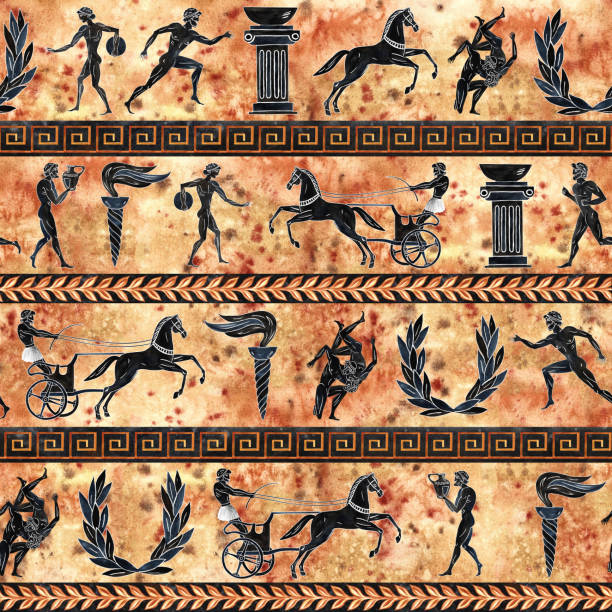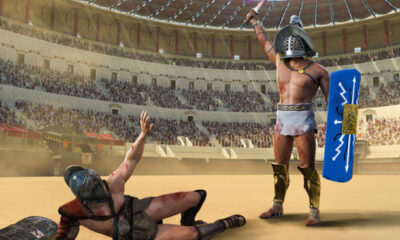Fact-Check
These Are The Craziest Conspiracies Surrounding Ancient History

The study of ancient history has long fascinated scholars and enthusiasts alike, providing a glimpse into the lives, cultures, and civilizations of bygone eras. However, as with any field of study, ancient history is not without its controversies and debates. These controversies often stem from a combination of incomplete evidence, conflicting interpretations, and evolving research methodologies. Here, we delve into some of the most intriguing controversies surrounding ancient history:
1. Dating and Chronology: One of the primary challenges in ancient history is establishing accurate dates and chronologies for historical events and civilizations. The reliability of dating methods, such as radiocarbon dating and dendrochronology, can be called into question, leading to debates over the timing of monumental events and the duration of ancient empires.
2. Historical Accuracy of Texts: Ancient historical texts, including chronicles, inscriptions, and scriptures, are essential sources for reconstructing the past. However, the accuracy and reliability of these texts are often questioned due to biases, inaccuracies, and inconsistencies. Unraveling the truth from the narrative can be a complex and contentious process.
3. Origin and Spread of Civilization: The origins and spread of ancient civilizations, such as the civilizations of Mesopotamia, Egypt, and Indus Valley, have sparked numerous debates among historians and archaeologists. Questions regarding cultural diffusion, migration patterns, and societal interactions continue to fuel discussions about the interconnectedness of ancient societies.
4. Historical Revisionism: As new archaeological discoveries and research methods emerge, the interpretation of ancient history is subject to revision. This process of revising historical narratives often leads to disagreements among scholars, with some advocating for radical reinterpretations of established historical events and figures.
5. Controversial Figures and Events: Figures and events from ancient history, such as Cleopatra, Alexander the Great, and the Trojan War, have captivated the public imagination for centuries. However, the historical accuracy of their portrayal in ancient texts and modern media remains a subject of controversy, with scholars attempting to separate fact from fiction.
6. Lost Civilizations and Archaeological Mysteries: The existence of lost civilizations, such as Atlantis, and enigmatic archaeological sites, like Göbekli Tepe in Turkey, continue to fuel speculation and debate within the field of ancient history. Unraveling the mysteries of these ancient sites and societies poses a tantalizing challenge for researchers and enthusiasts alike.
7. Interpretation of Artifacts: The interpretation of ancient artifacts, including pottery, tools, and art, plays a crucial role in reconstructing the daily lives and belief systems of ancient peoples. However, differing interpretations of these artifacts can lead to conflicting narratives about the cultural practices and social structures of ancient societies.
8. Conflict and Warfare: The study of ancient warfare, conquests, and conflicts is a contentious area of ancient history, with debates ranging from the causes of wars to the impact of military strategies on the rise and fall of empires. Scholars often disagree on the motivations behind ancient battles and the long-term consequences of conquests.
9. Cultural Appropriation and Colonialism: The legacy of cultural appropriation and colonialism in the study of ancient history has sparked discussions about the ethics of archaeological practices, the repatriation of cultural artifacts, and the representation of marginalized voices in historical narratives. Addressing these complex issues is essential for developing a more inclusive and ethical approach to ancient history.
10. Historical Bias and Ideological Influences: Finally, the presence of historical bias and ideological influences in the interpretation of ancient history cannot be overlooked. The perspectives of ancient historians, archaeologists, and researchers are shaped by their cultural backgrounds, beliefs, and societal contexts, leading to a plurality of interpretations and viewpoints on the past.
In conclusion, the controversies surrounding ancient history are a testament to the dynamic and multifaceted nature of this field of study. By critically engaging with conflicting evidence, challenging established narratives, and embracing diverse perspectives, scholars and enthusiasts can deepen their understanding of the complexities of ancient civilizations and societies. Ultimately, it is through rigorous research, respectful dialogue, and a commitment to uncovering the truths of the past that we can continue to unravel the mysteries and controversies of ancient history.
-

 Breaking News3 years ago
Breaking News3 years agoBREAKING: CBN Redesigns Naira Notes
-

 Breaking News2 years ago
Breaking News2 years agoBREAKING: Tinubu Considers Temporary Subsidy On Petrol
-

 Breaking News2 years ago
Breaking News2 years agoJUST IN: Gbajabiamila Dies In UK
-

 News3 years ago
News3 years agoDrama As Church Gives Certificate Of Virginity To Ladies After Testing Them (See Photos)
-

 Crime4 years ago
Crime4 years agoUproar As Student Teacher On Teaching Practice Impregnates 24 Girls, Headmistress, Four Female Teachers
-

 Breaking News10 months ago
Breaking News10 months agoJUST IN : Sacked Osun LG Chairman Killed Few Minutes After Returning To Office
-

 Breaking News2 years ago
Breaking News2 years agoBREAKING: Dangote Speaks As BUA Reduces Price Of Cement
-

 Crime3 years ago
Crime3 years agoJUST IN: Gunmen Storm Osogbo, Kill Man, Daughter Few Hours After His Wife Put To Bed (Photos)


